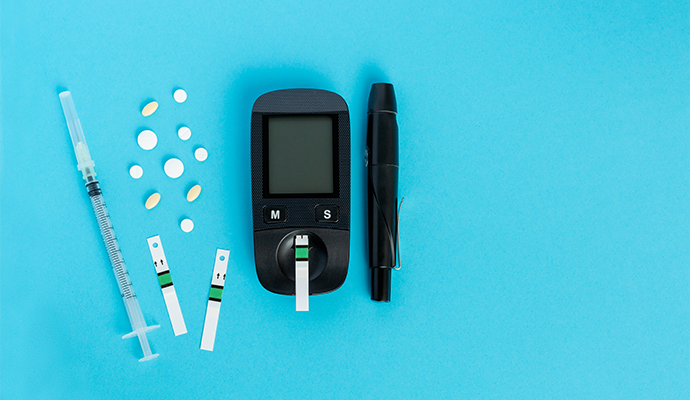AI Clinical Decision Support Tool Predicts Risk of Diabetes Complications
Researchers at the University of Houston have developed an artificial intelligence-based clinical decision support tool to predict which diabetes patients are at a higher risk of complications.

Source: Getty Images
- Researchers at the University of Houston (UH) have developed an artificial intelligence (AI)-based clinical decision support tool that leverages deep learning (DL) to predict which patients are more likely to experience diabetes complications.
The Centers for Disease Control and Prevention (CDC) report that 11.3 percent of the population, or 37.3 million people, have diabetes in the US. Like other chronic diseases, diabetes can lead to additional health problems or complications, such as chronic kidney disease, nerve damage, and issues related to mental health, oral health, foot health, hearing, and vision.
To reduce the percentage of patients who experience complications and lower the number of complications impacting each patient, the researchers are developing Primary Care Forecast. This clinical decision support system relies on DL and patient health history to predict which patients are likely to experience complications.
The team plans to use Primary Care Forecast to develop the Diabetes Complication Severity Index (DCSI) Progression Tool, which uses patient health history alongside social and environmental factors — such as employment status, living arrangement, education level, food security — which can impact disease progression to evaluate patient risk for diabetes complications.
“Our long-term goal is to help clinicians become more proactive and less reactive when treating diabetes. By leveraging the capabilities of artificial intelligence and machine learning, we can more effectively connect at-risk individuals with interventions before they become sicker,” said Winston Liaw, MD, the principal investigator of the project and chair of the Department of Health Systems and Population Health Sciences at the UH Tilman J. Fertitta Family College of Medicine, in the press release.
According to the press release, researchers and insurance companies have previously used the DCSI, a risk stratification tool created by Humana, to quantify patient complications at a single point in time. But no tools exist to predict which patients are at the highest risk for rising DCSI scores.
“The challenge with existing prediction tools is they provide little explanation and no guidance for subsequent action, limiting trust and implementation. The tool we are developing will inform clinicians why patients are at risk and suggest actions to reduce that risk,” said Ioannis Kakadiaris, PhD, the Hugh Roy and Lillie Cranz Cullen University Professor of Computer Science and Health Systems and Population Health Sciences at UH, in the press release.
The researchers also believe their tool could help predict complications associated with other conditions beyond diabetes, such as worsening depression or hypertension.
“As primary care doctors, we need an efficient way to leverage the massive amounts of information we receive to improve the quality of life of our patients. The number of complications a patient experiences is strongly associated with death or hospitalization, so developing this AI tool is critical,” Liaw said.
This is the latest AI tool being developed to help manage diabetes and prevent adverse outcomes.
In 2020, researchers from Oregon Health & Science University (OHSU) shared that they had developed a machine learning-based clinical decision support tool to help type 1 diabetes patients control their blood sugar and manage their condition more effectively. The tool was designed to identify causes of hypoglycemia and hyperglycemia and generate insulin adjustments based on 12 potential recommendations. The tool was found to help reduce hypoglycemia over the course of the study.
